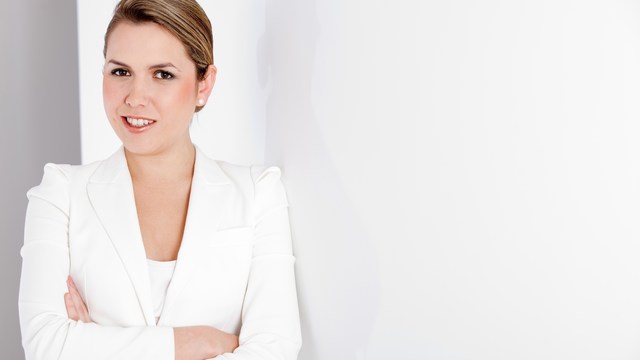 Andres Rodriguez/PhotoSpin
Andres Rodriguez/PhotoSpin
Can we talk openly and honestly, woman to woman? Most health experts agree that getting a mammogram is the best way to detect early breast cancer. Yet some women bypass this lifesaving test because of common online rumors or personal anecdotes.
If you are age 40 or older and haven’t been tested in the last two years, read on. I’ll share with you what the experts say are the top reasons women don’t get tested, and why they should.
1. Mammograms hurt.
I’ve never met a woman who is excited to get a mammogram, though they may exist. From personal experience I can say there’s nothing thrilling about having your boobs compressed between two sheets of glass. If the thought of this is putting you off, just remember, breast cancer is more painful than a mammogram!
The key here is to RELAX. Tell your technician if you are anxious and she will help to minimize any discomfort. It’s also helpful to schedule a mammogram right after your period when breasts are less sensitive. Take a pain reliever an hour before the mammogram appointment.
2. I can’t afford a mammogram.
Good news. If you have private or health insurance, Medicare or Medicaid, coverage of mammograms for breast cancer screening is mandated by the Affordable Care Act. The Act provides that mammograms be performed without a co-pay or deductible in plans that started after August 1, 2012.
However coverage varies from state to state. Utah, for instance, is the only state without a law ensuring that private health plans cover or offer coverage for screening mammograms. Find details about your state here.
Also, some health plans that were in place before the ACA law was passed may not guarantee coverage. You can find out the date your insurance plan started, and what’s covered, by contacting your health insurance plan administrator.
3. No one in my family has ever had breast cancer, so I won’t either.
It's true, breast cancer risk is higher among women whose close blood relatives have this disease. Having a first-degree relative with breast cancer can double a person’s risk, while having two first-degree relative raises it threefold.
About 5-10 percent of women diagnosed with breast cancer have it as a result from an inherited gene and 15 percent of those diagnosed have a family member who’s also been diagnosed, according to American Cancer Society statistics. That means the vast majority of women (about 85 percent) diagnosed have no family history of the disease.
4. I don’t have time.
It seems we all get busier every year. But this is your long-term health we are talking about, and caring for others who depend on you depends on you staying healthy. Most breast screening appointments last between 15-30 minutes, a small sacrifice for peace of mind.
5. I’m flat chested so my risk is low.
A 1991 European study did find that flat-chested women were at a lower risk than large-breasted women, however the study results doesn’t mean it's true across the board. The women studied were all premenopausal and obesity, in part, among larger-busted women accounted for slightly higher risk.
As you age, regardless of your cup size, your breast cancer risk increases. Even if your risk is low, all women should begin yearly mammograms at age 40.
6. A mammogram scares me.
Many women voice apprehension about two aspects of screening. First, they don’t know what to expect, and second, the thought of getting a cancer diagnosis is scary. Learning what to expect before, during and after the test will help quell your fear about being tested. While the prospect of being diagnosed is a scary one, the earlier breast cancer is diagnosed and treated the better chance a person has for a full recovery.
7. I eat right, exercise and maintain a healthy weight.
Fantastic. You’re doing it right, but you still need to get screened. Here’s why: A healthy lifestyle lowers your risk but it doesn’t eliminate it. Include routine screening as part of your healthy habits.
8. I’m too young for breast cancer.
Most breast cancer is diagnosed after menopause, but that doesn’t mean younger women can’t develop it too. One in eight breast cancers are diagnosed in women younger than 45. Think Christina Applegate (diagnosed at 36), Giuliana Rancic, (diagnosed at 36) and singer-songwriter Anastacia (diagnosed at 29).
9. I can’t feel any lumps during a self-exam.
Doing a self-exam is a healthy habit, but it’s important to know that breast cancer can start long before a lump is felt. Mammograms can show tumor lumps or “specks” that may be from cancer, precancerous cells, or other conditions that would require further testing.
10. I don’t know where to get tested.
Your health professional can schedule the tests for you or U.S. residents can get more information about cancer and screening tests from a trained cancer information specialist. Call the NCI Cancer Information Service toll-free at 1-800-4-CANCER or log on to their chat site at https://livehelp.cancer.gov/app/chat/chat_launch
Lynette Summerill is an award-winning writer and watersport junkie who lives in San Diego with her husband and two beach loving dogs. In addition to writing about cancer-related issues for EmpowHER, her work has been seen in publications internationally.
Sources:
American Cancer Society. Breast Cancer Facts.
http://www.cancer.org/cancer/breastcancer/detailedguide/breast-cancer-risk-factors
Breast size, handedness and breast cancer risk. Hsieh, CC and Trichopoulos, D. Eur J Cancer 1991;27(2):131-5. Abstract at:
http://www.ncbi.nlm.nih.gov/pubmed/1827274
What is a mammogram and when should I get one? CDC.
http://www.cdc.gov/cancer/breast/basic_info/mammograms.htm
What is Breast Cancer Screening? National Cancer Insititute.
http://www.cancer.gov/cancertopics/pdq/screening/breast/Patient/page1/AllPages
Reviewed February 4, 2014
by Michele Blacksberg RN
Edited by Jody Smith





Add a CommentComments
There are no comments yet. Be the first one and get the conversation started!